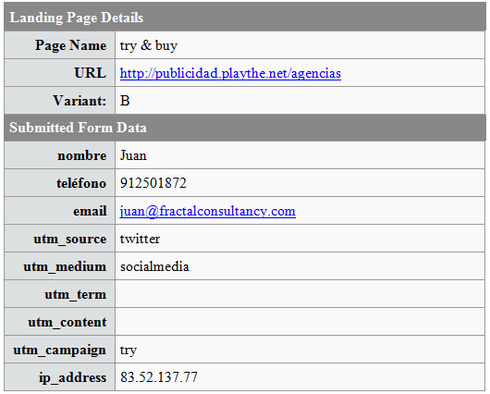Hi there. To do this you simply add those parameteres to the link in your traffic source. You do that by adding a ? and them the paramaters like this ?utm_source=Google&utm_campaign=try Your full URL will be something like this http://publicidad.playthe.net/agencias/?utm_source=Google&utm_campaign=try
You can add more paramaters based on your need.
You’ll even find more about this in the Unbounce documentation here.
We do that when we tag manually our URLs, but Adwords uses Google auto-tagging.
So we want to know if there is any way to pass UTM parameters from Adwords to Unbounce.
Thanks!
Ok. Not exactly sure if you’ll be able to get this working without manually tagging the links. Perhaps someone else knows how - let’s see 🙂
I found that it has to be done manually. NOTE: You have to configure Google Analytics to allow the values to overwrite the auto-tagggin values (https://support.google.com/analytics/answer/1033981?hl=en). See “You need to use auto-tagging for non-Analytics purposes” at the bottom.
You need to add tags to your Adwords links, but you don’t have to do it manually.
Thankfully, Adwords has a feature that allows to add UTMs to each ad automatically, called tracking templates.
Here is how to use it:
- Go to Google Adwords – Shared Library – URL Options.
- Tracking Template – Edit.
- Paste this text: {lpurl}?utm_source=google&utm_medium=cpc&utm_campaign={campaignid}&utm_term={keyword}&utm_content={creative}
- If someone has already added UTM parameters to your ad destination URLs, use this text instead (question marked is replaced with ampersand here):
{lpurl}&utm_source=google&utm_medium=cpc&utm_campaign={campaignid}&utm_term={keyword}&utm_content={creative}
- Test (make sure that your links keep working, Adwords will show you) and Save.
If you’re interested in tracking more than just UTM parameters, check out this article.
It shows how to track to Unbounce the referrer, first click information, time spent on the page, location etc.

